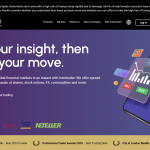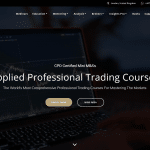Forex brokers act as intermediaries between retail traders and the global currency markets. They provide trading platforms, market access, and execution services. Understanding the types of forex brokers is essential for traders to select the right service that matches their trading style, risk tolerance, and needs.
This article explains the main types of forex brokers, their business models, and how they differ in execution, pricing, and services.
Main Types of Forex Brokers
1. Dealing Desk (DD) Brokers
Also called Market Makers, these brokers create a market for their clients by taking the opposite side of a trade. Instead of passing orders directly to the interbank market, they execute orders internally.
- Execution: Instant, without passing to external liquidity providers
- Spread: Fixed or variable, often wider to cover risk
- Advantages: Guaranteed liquidity, suitable for small traders
- Disadvantages: Potential conflict of interest (broker profits when clients lose)
- Example Brokers: FXCM, IG (some accounts)
2. No Dealing Desk (NDD) Brokers
These brokers send client orders directly to the interbank market or liquidity providers without intervention.
a) Straight Through Processing (STP) Brokers
- Send orders straight to multiple liquidity providers
- Mark up spreads slightly to make profit
- Execution speed depends on liquidity providers
b) Electronic Communication Network (ECN) Brokers
- Provide direct access to a network of liquidity providers including banks, hedge funds, and other traders
- Charge commissions per trade rather than markups on spreads
- Offer raw spreads, often from 0.0 pips
- Allow order book transparency and direct order matching
- Favoured by scalpers and algorithmic traders
- Advantages: Transparent pricing, no conflict of interest
- Disadvantages: May have higher minimum deposits, commissions
- Example Brokers: IC Markets, Pepperstone (ECN accounts), FxPro
3. Hybrid Brokers
These brokers combine features of dealing desk and NDD models, routing some orders externally while managing others internally.
- May offer multiple account types (ECN, STP, Market Maker)
- Provide flexibility to traders depending on volume or instrument
Summary Table of Forex Broker Types
| Broker Type | Execution Method | Spread Type | Commission | Conflict of Interest | Suitable For |
|---|---|---|---|---|---|
| Dealing Desk (DD) | Internal, market maker | Fixed or variable | Usually none | Yes | Beginners, small accounts |
| STP (No DD) | Straight to liquidity providers | Variable | Usually none | No | Intermediate traders |
| ECN (No DD) | Direct to ECN network | Raw (0.0 pips) | Yes, per trade | No | Professional, scalpers |
| Hybrid | Combination of above | Variable | Varies | Varies | Flexible, varied traders |
Key Takeaways
- Dealing Desk brokers create a market and may have a conflict of interest
- NDD brokers offer transparent pricing and pass orders to real liquidity
- ECN brokers provide raw spreads and commission-based fees
- Hybrid models mix execution styles for flexibility
- Choosing the right broker type depends on trading style, capital, and strategy
Frequently Asked Questions
What is the difference between dealing desk and no dealing desk brokers?
Dealing desk brokers execute trades internally as market makers, while no dealing desk brokers send orders directly to the market.
Which type of broker offers the lowest spreads?
ECN brokers usually offer the lowest raw spreads but charge a commission per trade.
Are dealing desk brokers bad?
Not necessarily. They provide guaranteed liquidity and fixed spreads but may have a conflict of interest.
Can I scalp with all broker types?
Scalping is generally best suited for ECN and STP brokers with fast execution.
Do hybrid brokers exist?
Yes, many brokers offer hybrid models with multiple account types catering to different trader needs.




Leave a Reply
Please log in or register to share your thoughts.